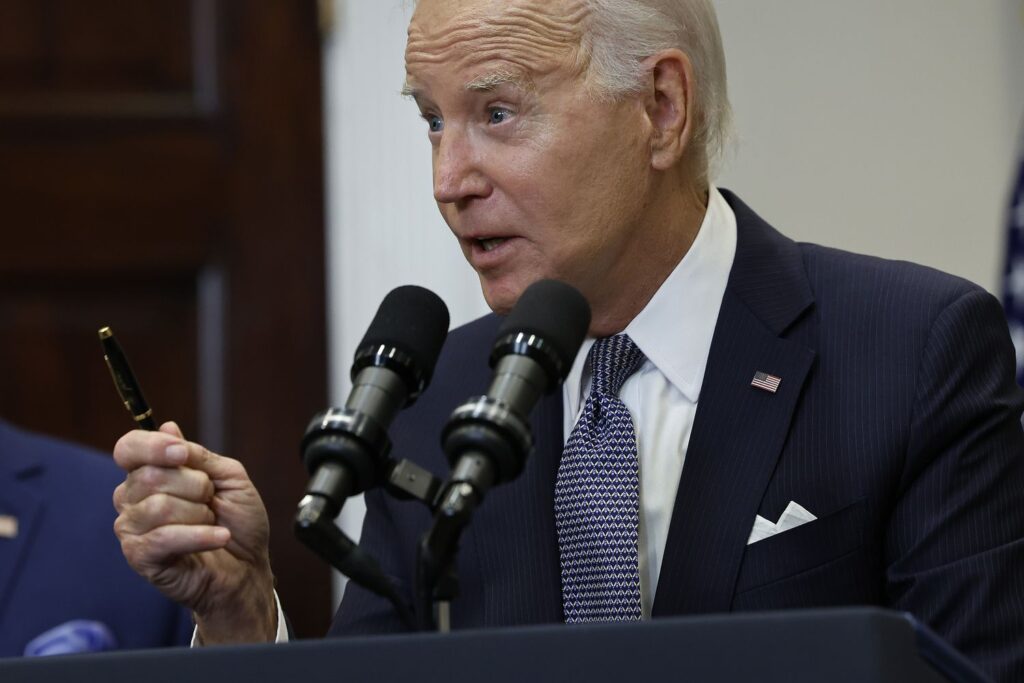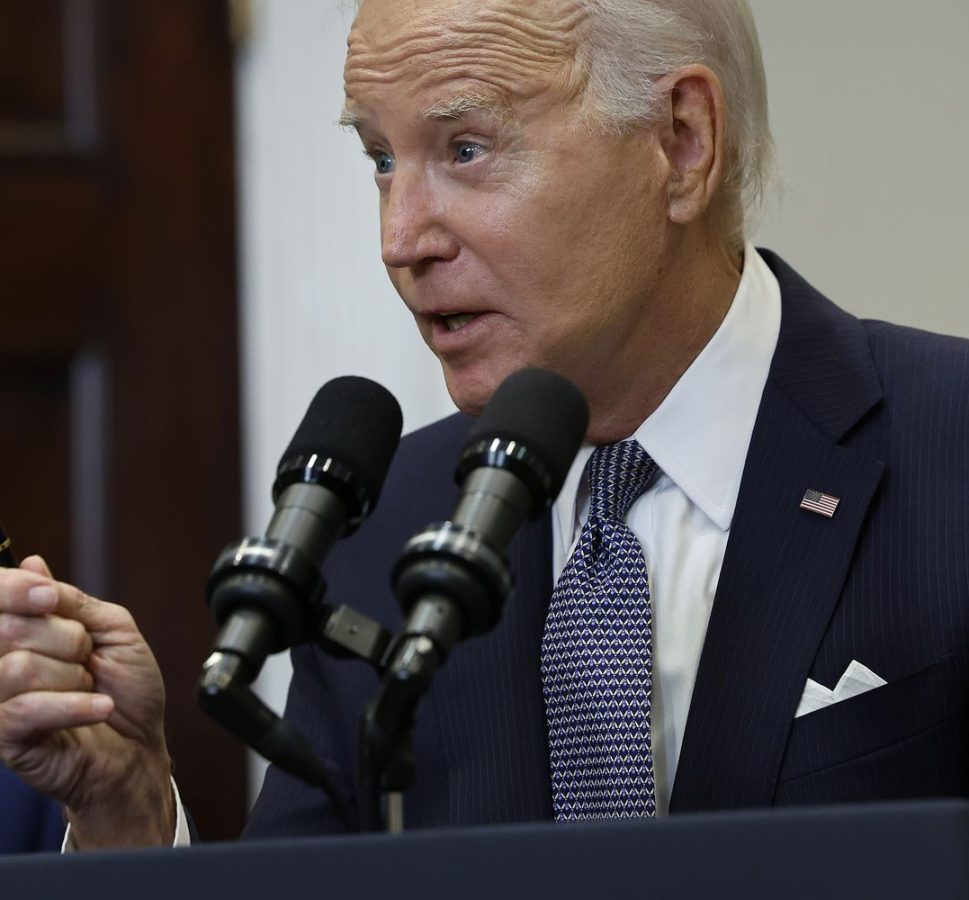
US President Joe Biden has said he hopes to have a ceasefire “by next Monday” in the Israel-Gaza war.
His comments come amid reports of some progress reached in ongoing negotiations involving Israel and Hamas representatives in Qatar.
“My national security adviser tells me that we’re close,” Mr Biden said.
Israel launched a large-scale air and ground campaign in Gaza after Hamas gunmen killed about 1,200 people in southern Israel on 7 October.
The attackers also took 253 people hostage, a number of whom have since been released.
The Hamas-run health ministry in the Gaza Strip says at least 29,878 people have been killed in the territory since then – 96 deaths in the past 24 hours – and 70,215 people have been wounded.
President Biden, whose country is Israel’s main ally, was speaking to reporters in New York City about the possible ceasefire.
“We’re close,” he said on Monday. “We’re not done yet. My hope is by next Monday we’ll have a ceasefire.”
A spokesman for the US State Department said earlier that “progress” had been made in negotiations to release the Israeli hostages in the last several days, but that it remained unclear whether Hamas would accept the latest proposed deal.
“We’ve had progress with the conversations we’ve had between Egypt, Israel, the United States and Qatar,” said spokesman Matthew Miller.
Last week the US was widely criticised for vetoing a UN Security Council resolution demanding an immediate ceasefire in Gaza. Instead, it proposed its own temporary ceasefire resolution, which also warned Israel not to invade the southern Gazan city of Rafah.
Israel says its forces are preparing to go into Rafah to attack Hamas fighters there. On Sunday the prime minister’s office said it had received plans from its military to evacuate civilians from the city.
Israel has been under mounting international pressure not to launch an offensive in Rafah, where about 1.5m Palestinians are sheltering, most having fled fighting further north in the territory.
In a separate development, Palestinian Authority (PA) Prime Minister Mohammed Shtayyeh resigned along with his government, which runs parts of the occupied West Bank.
President Mahmoud Abbas accepted his decision, which could pave the way for a technocratic government.
Mr Abbas is under pressure from the US to reform the PA so it can govern Gaza after the Israel-Hamas war ends.
Last week, Mr Netanyahu presented a vision for the territory that made no mention of any role for the PA.






